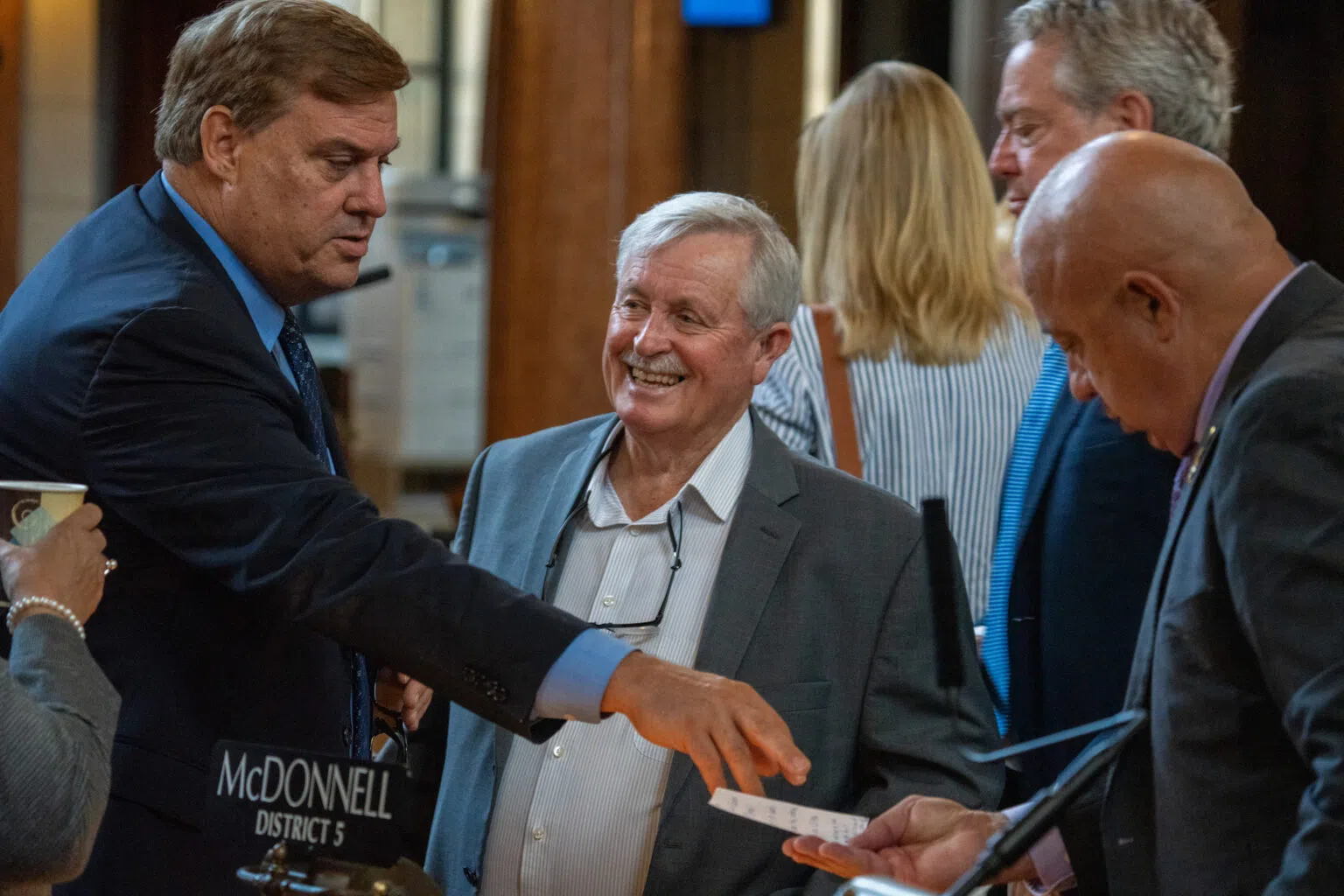LINCOLN — A coalition of state lawmakers is actively seeking support for proposed legislation in 2025 that aims to address a gap in property tax relief caused by a last-minute compromise during a summer special session. Leading the initiative is State Senator Steve Erdman from Bayard, who has highlighted the issue of a “missing year” of tax relief due to the lack of income tax credits for property taxes paid in 2024.
Erdman, along with fellow term-limited Senators Justin Wayne and Steve Halloran, opposed Legislative Bill 34 during the special session, advocating for more meaningful policies. Erdman described the new proposal as “a starting point” in their effort to rectify the situation. He emphasized the urgency of the matter, stating, “This is our opportunity to share with others that this is a serious problem, and this is one step to try and fix it.”
State Senator Brian Hardin from Gering is expected to lead the legislation in Erdman’s absence. He remarked, “In the process of patching the dam, we might have inadvertently created another hole.” Several other senators, including Tom Brandt and Danielle Conrad, have already expressed their support for Erdman’s draft legislation, urging Nebraskans to contact their representatives to advocate for the restoration of “lost” tax credits.
In August, during the special session called by Governor Jim Pillen, lawmakers modified an existing three-year relief process that provided refundable income tax credits for property taxes paid. Starting this December, tax credits will be automatically deducted when property taxes are paid, rather than requiring taxpayers to request relief a year later.
Senators Linehan and von Gillern, both influential figures in the Revenue Committee, noted that while moving the credits forward benefits taxpayers, the legislation may come with a significant fiscal note. Erdman’s proposal is estimated to cost an additional $560 million in state funding, prompting concerns from state officials about available resources.
Brandt pointed out that many rural taxpayers are frustrated by the absence of the credit, feeling that the rules have changed unexpectedly. He stated, “We owe it to the taxpayers of the state to fix this.” Erdman warned that the oversight could lead to an average property tax increase of 20-22% for some taxpayers, affecting those who have budgeted based on expected credits.
As the January session approaches, Erdman hopes to introduce the legislation quickly to address these concerns before taxpayers file their returns. The group of lawmakers emphasizes the need for prompt action to ensure that Nebraskans receive the tax relief they are owed, keeping the discussion active as they work toward a consensus.


















Comments